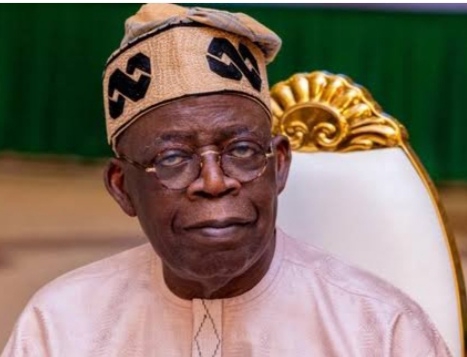By Lawrence Egede
Frankly speaking, I often ask myself: Does President Bola Ahmed Tinubu truly understand the depth of pain and hardship ordinary Nigerians are going through today?
If I had direct access to him, the first thing I would do is tell him – respectfully but truthfully – that more than 80% of the population are disappointed, disillusioned, and feel completely let down by his administration.
Everywhere you turn in Nigeria, there's evidence of mounting hardship: insecurity is rising, poverty is deepening, and the naira has lost so much value that basic living has become a daily battle for survival. Food prices are skyrocketing, transport fares have doubled or tripled, and many households can no longer afford medicine or education for their children.
The removal of fuel subsidy, while necessary in the long run, has only worsened the suffering of the poor – especially without a visible, working palliative structure. One begins to wonder: Is the President truly getting accurate, uncensored reports on the state of the nation? Or is he being shielded by those around him who are more interested in preserving their positions than conveying the truth?
When we compare the current situation to the Buhari administration – which itself had its share of criticism – it is shocking to note how far we’ve fallen. Today, Nigerians speak of increased criminality, deceit in governance, institutional pretense, rampant falsehood, and widespread neglect of the masses. The common man feels abandoned, and trust in leadership continues to decline.
It’s even more disturbing to see many privileged citizens and political elites ignore the obvious reality. They prefer silence to truth, fearing that honest speech may cost them their appointments or political favours. This culture of silence and complicity is dangerous. How can we claim patriotism and still watch our country sink deeper into economic and social despair?
If President Tinubu is indeed receiving accurate briefings and yet remains unmoved, it becomes even more troubling. But if, as I suspect, he is being misinformed or deliberately kept in the dark by close aides and sycophants, then the real tragedy is that leadership has been hijacked by those unwilling to tell hard truths.
That was why I respected General Olusegun Obasanjo during his time as military Head of State. He made it a duty to personally review press reports, read public opinion columns, and stay abreast of what ordinary Nigerians were saying – whether flattering or not. He understood the importance of feedback and used it to govern better.
Today’s presidential media team, by contrast, seems more interested in exchanging insults, suppressing criticism, or launching counterattacks against perceived enemies. This is not what Nigerians need.
Nigerians are not asking for miracles. They are simply asking for leadership that listens, empathizes, and acts with integrity and urgency. They are asking for a president who sees what they see, feels what they feel, and moves to correct the imbalance in the system.
Until that happens, we will continue to question whether President Tinubu is truly aware of the Nigeria he governs — or whether he is presiding over a nation whose agony is filtered out by loyalists afraid to speak truth to power.
May God help Nigeria and rescue her people from the anguish they face daily.













